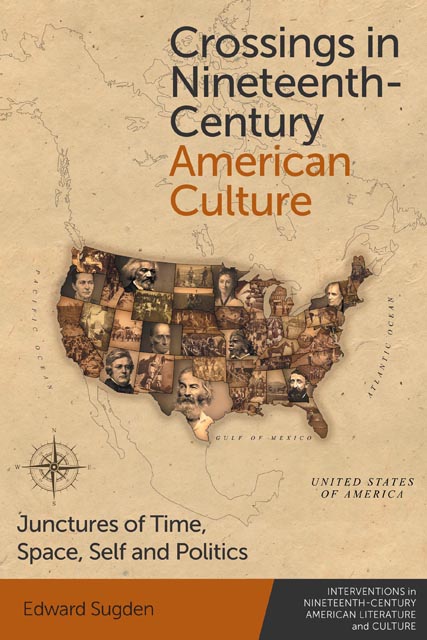3 - Body/Spirit: Walt Whitman’s Hicksite Quaker Poetics, 1855
Published online by Cambridge University Press: 26 November 2022
Summary
In 1888, Walt Whitman penned a brief sketch of the life of the venerated Quaker orator, Elias Hicks, for inclusion in his publication of November Boughs (1888). Hicks was, for Whitman, an influential figure, not only for the insight he offered when he preached, but for the charismatic manner with which he did so. In Boughs, Whitman recounts how, at ten years of age, he attended a gathering of the Society of Friends at the Morrison Hotel in Brooklyn, New York, to hear Hicks speak. Whitman remembered that the ‘handsome ballroom’ of the Morrison was ‘large, cheerful, [and] gay-color’d’, with ‘glass chandeliers bearing myriads of sparkling pendants, plenty of settees and chairs, and a sort of velvet divan running around the side walls’ in which sat ‘the principal dignitaries of the town’ (Whitman [1888] 1982, ‘Notes’: 1233). The people in attendance made quite an impression on young Walter for, as divisive a figure as Elias Hicks was, a broad spectrum of New York City's eclectic population had turned out to hear him speak. Outside of the public figures in attendance, Hicks's audience consisted of Brooklyn youth; sophisticated, wealthy women; and a group of naval officers. Most significantly, Walter noticed ‘on a slightly elevated platform … a dozen or more Friends, most of them elderly, grim, and with their broad-brimmed hats on their heads. Three or four women, too, in their characteristic Quaker Costumes and bonnets. All still as the grave’ (1233).
But as is customary in the Meetings of assembled Friends, the listeners then waited in silence. Finally, Elias Hicks rose to speak. He was a ‘tall, straight figure, neither stout nor very thin, dress’d in drab cloth, [and with a] cleanshaved face’ (1233). Young Walter was impressed by Hicks's immediate command of the room. For a long dramatic moment, Hicks's ‘black eyes that blazed like meteors’ surveyed the crowd in absolute stillness (Whitman [1888] 1982, ‘Father Taylor’: 1145). Then, ‘the words come from his lips, very emphatically and slowly pronounc’d, in a resonant, grave, melodious voice, “What is the chief end of man? I was told in my early youth, it was to glorify God, and seek and enjoy him forever”’ (Whitman [1888] 1982, ‘Notes’: 1233).
- Type
- Chapter
- Information
- Crossings in Nineteenth-Century American CultureJunctures of Time, Space, Self and Politics, pp. 41 - 56Publisher: Edinburgh University PressPrint publication year: 2022

